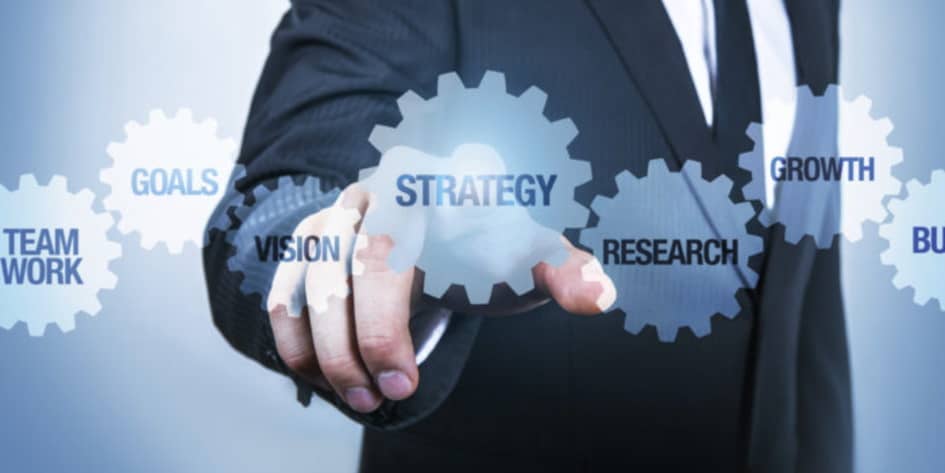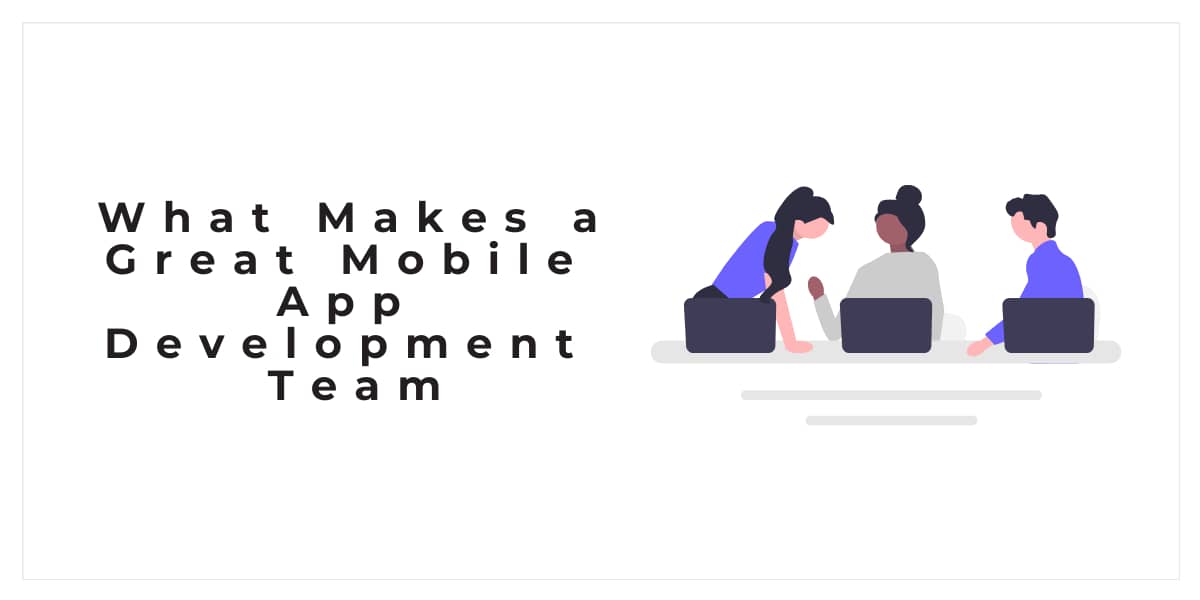The ultimate output of a software product relies on numerous aspects beyond just engineering. The presence of personnel is another. Business strategists, designers, developers, quality assurance engineers, and marketing and sales experts are the typical suspects on a well-functioning mobile app development team.
It goes without saying that a great mobile app development team should be assigned to any project involving the creation of a mobile application. The roles that make up such a team, the skills and experience that ideal applicants should possess, and more. So what makes a great mobile app development team? This article will provide you with as much information as possible.
Roles required to establish a great mobile app development team
1. Business Strategist

It's a role with a wide variety of titles and duties, such as project manager, financial consultant, and strategist. As the project's primary driver, business strategists must keep both the development and client teams apprised of progress. Timeliness in project completion is the duty of the project manager or leader.
Competencies Required:
- Required to have experience in a technical field.
- Should be able to demonstrate a strong sense of responsibility.
- A comprehensive understanding of the business sector as a whole.
- Ability to effectively manage the company's human resources.
2. Manager of Products and Projects
If you bring your app concept to a mobile app development business, you'll work with a project manager (PM) who acts as an intermediary between you and the developers working on your app. One who manages a project from inception to end is called a project manager.
Competencies Required:
- Must have problem-solving abilities.
- Be always inventive.
- Ready to comprehend the requirements of the customer.
- Familiar with a variety of computer programming languages.
3. Designers

In practice, though, mobile design professionals must start with paperwork. The team then works out how users will be able to move throughout the app and makes some rough wireframes. The next step is for designers to craft the app's aesthetic, either by developing a unified user interface and user experience across all supported platforms or by creating a unique UI/UX for hybrid applications.
Competencies Required:
- Knowledge of user interface and user experience design software such as Figma, InVision, and Sketch.
- Possessing up-to-date expertise in user experience (UX) analysis, wireframing, user interface (UI), and interaction design.
- You need to know the basics of coding in order to communicate effectively with computer scientists.
4. Developers
According to Matt Long - CEO at Groove Technology Solutions (The Company Provides Offshore Software Development) The developers' role is to take the completed UI/UX designs and turn them into a functioning app for either Android or iOS. Programmers need familiarity with a development environment and its languages. Android uses Java/Kotlin whereas iOS uses Objective-C/Swift.
However, additional abilities are required for cross-platform mobile development, including coding skills in HTML/CSS/Java for PhoneGap and Cordova. In Xamarin, we use C#, and in React Native, JavaScript.
Competencies Required for iOS Programmers:
- A fluency in Objective-C and Swift for developing native applications.
- Familiarity with the Xcode integrated development environment (IDE), the primary tool for creating programs for macOS, iOS, and iPadOS.
- Knowledge of app development for recent versions of iOS and iPadOS.
Competencies Required for Android Programmers:
- Expertise with both Kotlin and Java.
- Validated history of utilizing Android Studio, the Android development environment.
- Software development skills that allow for compatibility with a wide range of Android gadgets and screen sizes.
5. A developer of back-end systems
When assembling a team to build a mobile app, a Backend Developer is an additional key player. They are mostly employed to oversee the workings of the servers, the cloud, and the administrative logic. The responsibilities of a backend developer include overseeing the server infrastructure, data storage, and business logic.
Competencies Required:
- Programming expertise, ideally in Java,.NET, Python, PHP, or Ruby.
- Ability to use code-versioning programs, such as Git.
6. Quality Assurance Engineers

Testing teams have the last say on whether a mobile app is ready to be shown to a client or released to the public. But even before they make that determination, they need to lay out all the potential avenues for enhancement and demonstrate why those enhancements are essential. In terms of feedback, QA professionals are the product's first and harshest critics.
Competencies Required:
- Proficient knowledge of QA testing technologies such as TestComplete, Robotium, and Appium.
- Familiarity with issue and feature tracking software, such as Jira.
7. Professionals in Sales and Marketing
If the sales and marketing staff didn't work hard, all the work of providing the product would be a waste. Sales and marketing pros transform products into revenue and solidify the accomplishments of a huge team by engaging with consumers, developing a product's brand, and producing campaign content.
Key Takeaways
To make it easier to designate which individuals of the software development team are involved in each step of app development, we've broken the workflow down into five primary phases.
Phase 1: Learning more about the criteria.
Goals, objectives, and functionalities for the app must be defined at this stage. After the research phase is complete, a low-fidelity app prototype should be made to ensure everyone involved is on the same page with the final product.
Phase 2: You'll verify your thoughts.
Focus on studying the experiences of early users using a concept validation prototype to learn who your engaged and paying customers are and whether or not your app is really useful.
Phase 3: Develop a plan for the user interface and user experience.
At this point, you'll begin working on the interface's specifics. Build an immersive, high-fidelity prototype of your app so that users can test out its features and offer you feedback on how well they work.
Phase 4: Design & Development.
At this phase, your app development team will begin programming and creating an MVP, which is a feature-focused product with a polished design and user-friendly interface but isn't quite a finished mobile app.
Phase 5: Putting it to the test and making tweaks.
You'll evaluate the app's usability and make any necessary adjustments based on what you learn from users' feedback and the data you collect.






